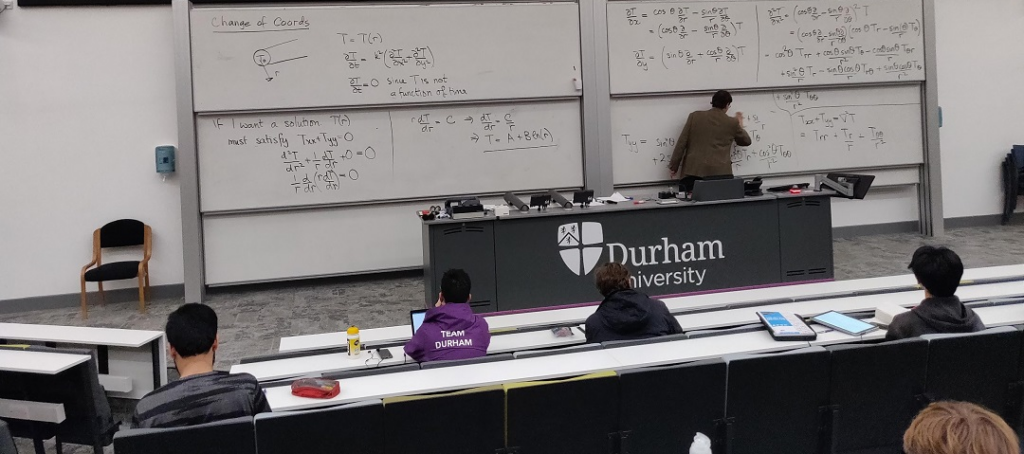When I meet someone new at Durham I’ll often get asked two questions….
“What college are you?”
“Mildert”, I’ll reply
“Cool. What do you study?”
“Maths.”
A look of horror will spread across their face. Can maths really be as bad as people think?
I’ll begin with the obvious: maths is going to sound awful to anyone who celebrated their last ever maths lesson. And maths at uni is hard – of course it is – like any other degree, it wouldn’t be worth doing if it didn’t challenge you and develop the way you tackle problems and think about the world. But I’m still left wondering: why don’t people have the same reaction to history or psychology?
Lots of contact hours
Firstly, in general, STEM students have a much fuller timetable than humanities students. I had 18 hours contact time per week in my first year (that’s time spent in lectures, labs, seminars and tutorials), so my days were nearly as full as in sixth form, which can be challenging when each evening you need to go over lectures and do homework problems as well. In comparison, contact time on a humanities course might only be one-third as much. Which sounds easy right?
On the contrary. I find that having such a full timetable takes a lot of pressure off your time management: if you have 9 am lectures every morning you don’t have much choice but to wake up (watching pre-recorded lectures this year has required more discipline…)! And spending all day in lectures with your mates makes every day really sociable.

On the topic of lectures, they’re much less interactive than the lessons I had in school, but you’ll get used to them pretty quickly. I really enjoy how in uni you cover so much new content every week, so if you’ve ever felt bored in school because new content came too slowly, you’ll love uni. And everyone’s in the same situation, getting used to the new way of learning just like you.
Lots of support available
As well as lectures, in my first two years I had a fortnightly tutorial for each module, so three per week. Tutorials are where you work through problems on the whiteboard with other students under the supervision of your tutor. They are a good place to ask questions and help you understand anything you’re finding challenging that week, and your tutor is also responsible for marking your homework which can be a great source of feedback.
Speaking of which, I’ve come to really appreciate how much support is available in the department. As well as in lectures and tutorials, you can ask questions during lecturers’ office hours, on the course discussion forum or even email your tutor directly. Every time I’ve asked for help I’ve received it and my only regret is not doing this sooner and more frequently. If you take any advice reading this, ask for help when you need it! You’re a paying customer.
So, is maths the hardest course? I don’t think so; it’s just a matter of perspective because I can read a Shakespeare essay but an English student can’t decipher my Fourier transforms (this doesn’t stop us telling them we’re better ;)). That’s not to say maths – or any degree – isn’t really tough. Whatever you end up studying, if you’re at uni, it’s because you did brilliantly in school and you deserve to be there.
Embrace the challenge, work hard, ask for help and you’ll do great.
Discover more
Download our latest prospectus and college guide here.
Follow our students on Instagram and YouTube.







